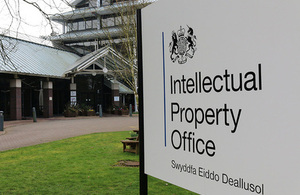- £5.1 million fund to provide classes to those with little or no English
- 30 areas across England to benefit from funding
- Lessons to take place in safe spaces like community centres and places of worship
Thousands of people are set to benefit from a new programme of English language classes and activities to help them fulfil their potential, Communities Secretary Robert Jenrick confirmed today (17 July 2020).
Building on the success of previous community-based programmes, Mr Jenrick announced £5.1 million for the English for Speakers of Other Languages (ESOL) for Integration Fund for classes and language learning activities in 30 areas across England.
The new programme will offer English language sessions to those with little or no written or spoken English. The 30 successful local authorities have all designed programmes that will best meet the needs of residents with little or no English language skills, who may feel disconnected, and will help them to fulfil their potential and improve their connections within their local communities.
The tailored language lessons will be delivered in familiar and accessible community buildings such as community centres and places of worship in a socially distant way, or online, via apps, with digital laptop libraries and 1:1 learner support.
Communities Minister Rt Hon Robert Jenrick said:
We are committed to levelling up and uniting our country. And a successful, well integrated society requires everyone to be able to speak English.
This funding will provide language classes to thousands of people, so they become fully integrated and active members of society, making a positive contribution to the UK.
The most recent Census (2011) found that 770,000 people that live in England speak little or no English.
Since 2013 over 100,000 places have been made available to help isolated adults improve their English language proficiency and build their self-confidence through community-based programmes.
Lack of English skills presents a clear barrier to social and economic mobility. For some learners more formal approaches to learning English can be challenging.
The most common difficulties are travel costs, lack of childcare, illiteracy in their first language, digital exclusion or a reluctance or lack of confidence to make the first steps towards learning English.
Community-based tuition is proven to be a highly effective means of engaging people who are in greatest need of support and may not have previously taken steps to learn English.
The programmes will focus on connecting learners to the places, spaces and people in their local area – helping them in everyday situations such as shopping in the high street, visiting the doctor or attending a parents’ evening. The fund will provide opportunities for English language practice, as well as social mixing through shared interests and activities both faced to face and online.
Find listed the 30 local authorities offered funding.
Up to £5.1m is being awarded in 2020/21 to support 30 local authority proposals for one year schemes offering taught sessions to participants at New to ESOL level (pre-entry – entry level one) by qualified ESOL practitioners; and social mixing opportunities for the whole ESOL community through clubs and activities.
The Ministry of Housing, Communities and Local Government has a successful track record of delivering English to Speakers of Other Languages (ESOL), in community-based settings, as a key intervention to support increased social integration. Interventions range from the Community Based English Language Programme in 2013 to the Integrated Communities English Language Programme in 2019/20.
For the last 3 years ESOL social mixing opportunities, such as conversations clubs and activities, have also been supported by the Department through the Controlling Migration Fund.
The fund is intended to supplement English language provision already available under the Adult Skills Budget and many of the participants will be expected to progress to more formal ESOL classes as their proficiency and confidence grows.
Case Studies are both part of the £5.1 million announcement
Case study 1
Manchester’s ‘Talk English’ is currently developing a dedicated web-based app ready for September so that learners and teachers can interact securely with one another using text, audio and video messaging. Learners will also be able to access good quality online learning activities and evidence and record their learning.
The new app will help tackle digital exclusion as well as improve the rate of progress for learners, who will use the app to continue their learning outside the classes and cafes also on offer through the scheme. It will also make sure learning can continue even if Covid19 puts further restrictions on physical classes and activities in future months.
The app will be highly visual in order to maximise engagement with learners who often have very low literacy and struggle to engage on other distance learning platforms.
Case study 2
Wakefield Council were awarded a grant of £222,879 from the ESOL for Integration fund. This will fund ESOL classes in community venues across the town, targeting and supporting learners who are at the very beginning of their English language learning journey.
The council are developing a curriculum and resources that are specific to Wakefield, introducing learners to local culture and local dialect, including the local Wakefield Trinity rugby league team, the fantastic pantomime at the Theatre Royal Wakefield, the joys of Yorkshire Puddings and the secrets of the Rhubarb Triangle.
Due to the Covid-19 pandemic, Wakefield council is adapting its programme by developing online teaching and resources, creating workbooks for learners that are posted to them, recruiting volunteers to be language buddies to support learners over the phone and are addressing digital poverty amongst learners through a laptop loan scheme and provision of data bundles.
